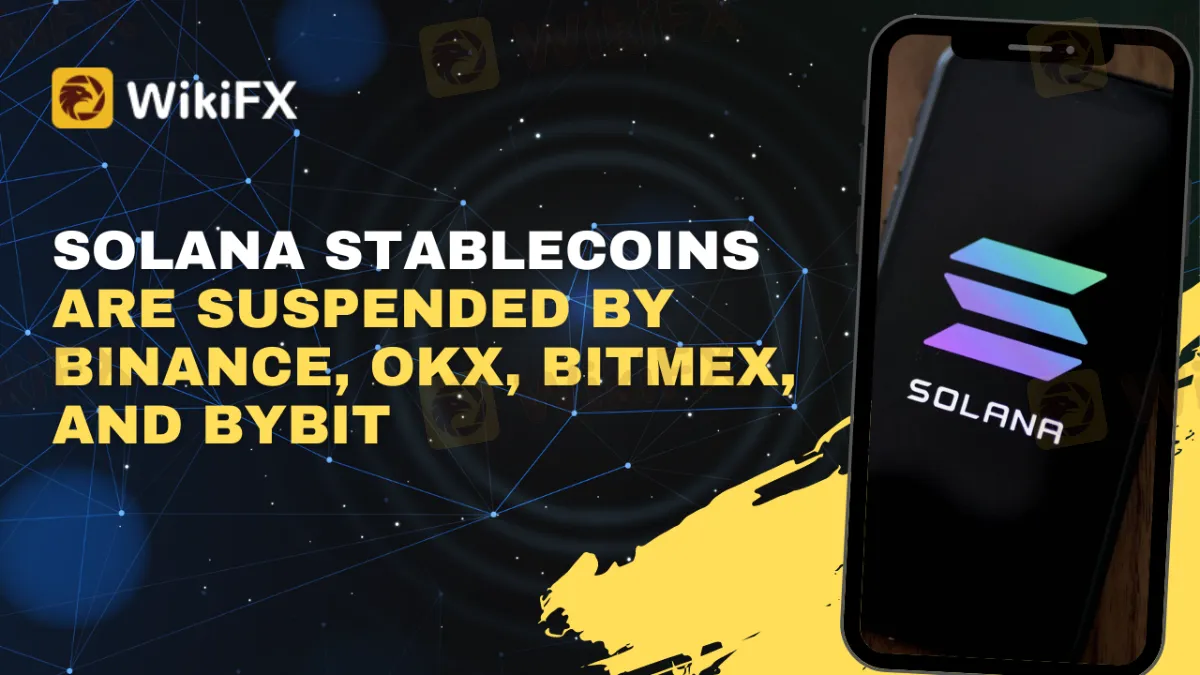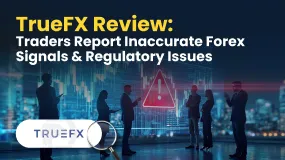Solana Stablecoins Are Suspended By Binance, OKX, Bitmex, and Bybit
Abstract:At least five cryptocurrency exchanges told their customers today that the Solana network has stopped all deposits and withdrawals of Tether's USDT and Circle's USDC.

As the FTX problem continues to shake up the cryptocurrency world, big platforms like Binance, OKX, BitMex, and ByBit have said that the halt will start right away. The two stablecoins exist on many other blockchain networks, but users who want to trade either of them on Solana are not allowed to. Binance's email went on to clarify that deposits in other ecosystems, like Ethereum and Cronos, would be unaffected.
In response, Circle, the company that gives out USDC, told users that their stablecoin based on Solana is working fine and that sending or receiving the stablecoin is not a problem. “USDC may always be redeemed for US dollars.” “Any sum.” “Any time.” “Free of charge.” “Always,” the company stated.

Tether, the world's largest stablecoin issuer, has distanced itself from the liquidity problem that plagued FTX and Alameda Research, claiming it had no links to Samuel Bankman-Crypto Fried's empire. Tether's CTO, Paolo Ardoino, wrote a thread to soothe market participants' anxieties and uncertainties about the link between FTX and its USDT cryptocurrency.
He also stated that, despite having previously issued and redeemed a significant amount of USDT, Alameda has no credit exposure with the faltering cryptocurrency trading firm.
Although these exchanges did not explain why they opted to stop Solana transactions, the decision comes during one of the most volatile weeks in cryptocurrency history. The story reached its climax when Sam Bankman-crypto Fried's empire filed for bankruptcy, citing a lack of cash flow and a “run on the bank”-like situation as the reason.
Aside from FTX's problems, the insolvent exchange and its creator have strong links to the Solana ecosystem. Alameda Research, Bankman Crypto Fried's trading department, funded $314 million for Solana's development team.
Due to the collapse of FTX's native token, the price of SOL has lost about two-thirds of its market value as investors continue to leave. At this point, the recent suspensions might be seen as a precautionary measure to protect FTX from overexposure to Solana's network while waiting for the situation to at least normalize.
Solana is an open-source blockchain designed to compete with Ethereum. It supports smart contracts, including non-fungible tokens (NFTs), as well as a wide range of decentralized apps (dApps).
Alameda Research and FTX have a lot of control over the SOL token, which can be staked to help protect the network and be used to send value.
Bitcoin, on the other hand, is still worth more than $16,600 as of Friday afternoon, almost the same as it was on Monday but 5% less than a week earlier. Before the collapse of prominent cryptocurrency exchange FTX two weekends ago, the world's biggest cryptocurrency traded at $21,000. The two-week crash sent Bitcoin to two-year lows. In the last week, it has ranged between $16,200 and $17,000.
After topping at $1,277 for the week on Tuesday, Ethereum is now trading a little over $1,200. Before the FTX drop, the #2 cryptocurrency was trading at $1,650.
What is FTX
FTX is one of the major cryptocurrency exchanges in the world. It lets people trade digital currencies for other digital currencies or regular money, and the other way around. Mr. Bankman-Fried was in charge of it, and it was situated in the Bahamas. It has spent millions of dollars pushing US lawmakers to pass crypto-friendly legislation.

Check out more of FTX here: https://www.wikifx.com/en/dealer/1257143466.html
Stay tuned for more FTX news.
Download the WikiFX App from the App Store or Google Play Store to stay updated on the latest news.

Read more

TrueFX Review: Traders Report Inaccurate Forex Signals & Regulatory Issues
Losing trades due to misleading forex signals on the TrueFX platform? Followed all the instructions, yet you received losses? Have you been lured into trading with TrueFX because of the NFA-registered claim on its website? Many have reported these trading concerns online. In this TrueFX review article, we have discussed these complaints. Take a look!

GMI to Stop Global Operations from Dec 31, 2025; Don’t Miss the Final Withdrawal Deadline
Taking the financial market by surprise, GMI, one of the leading global forex and CFD brokers, announced its intention to close its global operations from December 31, 2025. Since the official shutdown announcement, traders have been concerned about the status of fund deposits and withdrawals. They have understandably been searching for answers to these questions amid this announcement made by the group. Read on as we share with you key details emerging from the development.

PM Group 365 Review: Withdrawal Denials & Poor Customer Support Frustrate Traders
Has PM Group 365 breached the trading agreement with you? Have you had to face withdrawal denials for a long time with the Cyprus-based forex broker? Did you witness a margin call from the broker with just one bad trade after a good one earlier? Do you get a feeling that the less said about PM Group 365 customer support service, the better? You are not alone! Many traders have opposed the broker for its illegitimate trading activities. In this PM Group 365 review article, we have discussed these complaints in greater detail. Take a look!

Introducing Broker in Forex Trading: Meaning, Roles, Responsibilities & Fees
Acting as an intermediary between traders and brokerage firms, Introducing Brokers (IBs) can be both a company and an individual. They do not have a role in trade execution or account management. Their role is to offer advice and let clients open trading accounts and trade on the platform. In this article, we have discussed the meaning of the term 'introducing broker,' its role, payment structure, and other related aspects. Read on!
WikiFX Broker
Latest News
The "Broker Group" Abyss: How OmegaPro Trapped Thousands in a Digital Dead End
FXORO Under the Microscope: Revoked Licenses and The "Advisory" Trap
XXLMARKETS Review: Regulatory Status and Trading Conditions
IUX Review 2025: Regulatory Status and Withdrawal Complaints
Saxo Bank Review 2025: Regulatory Status and Safety Score
AmariFX Review: Traders Annoyed by Slippage, Login & Withdrawal Issues
Vida Markets Regulation and Broker Review
Headway Broker Regulation and User Reviews
MBFX Review: Withdrawal Denials, Fund Scams & Poor Customer Support Service
Show This to Your Elderly Loved Ones | Online Scams Are Emptying Seniors’ Life Savings
Rate Calc


